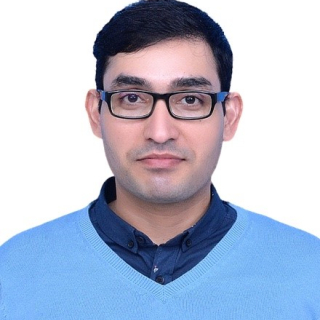Khalid Ahmed
Visiting Fellow
Qualifications
Ph.D. Economics, Wuhan University of Technology. P.R China M.A Economics, SALU, Pakistan BS. Commerce, SALU, Pakistan
With paper presentation
• Khalid Ahmed, “Long-run dynamics between stringent environmental policy, related technological change, trade, economic growth and emissions”. 18th Gottingen Workshop ‘International Wirtschaftsbeziehungen’, held on 24-26 February 2016 at Georg-August- Universitat Gottingen.
• Mujeeb Rehman, Khalid Ahmed, Ahmer Q, Qazi, ‘A Study of Causality between Disintegrated Intellectual Capital and Firm Performance: Evidence from China’. 4th ICoBM, Sukkur Institute of Business Administration, Sukkur 26-27 February 2014.
• Khalid Ahmed, Wei Long, “Environmental Kuznets Curve and Pakistan: An Empirical Analysis”. The International Conference on Applied Economics (ICOAE), Uppsala, Sweden, 2012.
• Khalid Ahmed and Wei Long, Adaptation as a Response to Climate Change: A Literature Review (December 15, 2012). Presented at 5th International Annual Conference on Industrial Economics and Economic Theory - Shandong University P.R China.
• Khalid Ahmed, Wei Long (2010), “An Analysis of Core Factors Contributing to U.S – China Trade Imbalance”, International Research Conference on Management and Finance, University of Colombo, held on December 10, 2010.
As an expert
• Presented on “Supply Chains dynamics of Pakistan”. Establishment of China Pakistan Economic Corridor (CPEC) Consortium of Business Schools. Held on 28~29 August 2017, National University of Science and Technology (NUST), Islamabad, Pakistan.
• Participated on behalf of Sukkur IBA University in, the “International Conference on Emerging Challenges of Business Schools in Pakistan” held from 27-28 January 2014. Islamabad, Pakistan.
• Provincial Expert on “Conference for Preparation of Pakistan Vision 2025 and 11th Five Year Plan 2013-18”, January 4, 2014. Karachi, Pakistan.
• Expert on National Energy and Environment Policy during “Prime Minister National Consultation Conference on Pakistan Vision 2025” November 2, 2013. Islamabad, Pakistan.
Invited Speaker
• 5th Silk Road International Symposium for Distinguished Young Scholars, held at Xi’an Jiaotong University (XJTU) from April 10-14, 2019.
• 4th Silk Road International Autumn Symposium for Distinguished Young Scholars to be held at Xi’an Jiaotong University (XJTU) from Sep 18-22, 2018.
• Khalid Ahmed, “China Pakistan Economic Corridor (CPEC): A Shared Prosperity”. Held on 20~22 December, 2016, Silk Road international Forum, 2016 – Shaanxi University of Science and Technology, P.R China
• Khalid Ahmed, “Energy consumption in China and underlying factors in a changing landscape: Empirical evidence since the reform period” held on April 6, 2016, Department of development Economics, University of Gottingen, Gottingen-Germany.
• Khalid Ahmed, “SAARC and regional trade integration: A Political economy perspective” held on November 4, 2015 at Seminar Room SG1, Center of South Asian Studies, University of Cambridge, U.K.
• Khalid Ahmed, “Political Economy of SAARC and regional trade integration: Recent ontogeny and future prospects” held on 29 April, 2014 at Korea Institute for International Economic Policy (KIEP), Seoul-Korea.
• Khalid Ahmed, “Gender Inequality in Pakistan and Its Repercussions on Growth: A Regression Analysis” held on April 22, 2014 at Center for Emerging Economies’ Research (CEER), Seoul-Korea.
•** Khalid Ahmed,** “Current Political and economic outlook of Pakistan: Challenges and opportunities”, held on April 10, 2014 at Korea Institute for International Economic Policy (KIEP), Seoul-Korea.
Keynote Speech
• Khalid Ahmed. “Turning the Ambitions into Action and the Role of Youth-Youth Dialogues in Addressing the Climate Change” University Alliance of the Belt and Road (UABR) Conference held on 10.12.2021 at Lanzhou University P.R China.
Guest Speaker
• Guest lecture on “Energy security and defence economy”. Command and Staff College, Royal Brunei Armed Forces. 13th April 2023.
• Guest lecture on “Global geopolitics of energy security and its implications on the national security framework”. Institute of Policy Studies (IPS), University of Brunei Darussalam. 15 June 2022
Updated: 21 November 2024/Responsible Officer: Crawford Engagement/Page Contact: CAP Web Team












